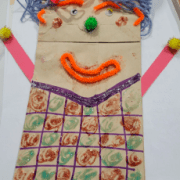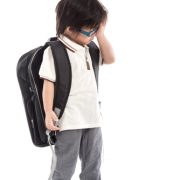Back to School: What to expect from your child and how you can provide them support
For many parents, the return of children back to school is a mixture of relief and stress. We feel stressed because there’s a lot of prep work for the return to school and there is also a sense of relief when we can all get back to a set routine and schedule.
Leading up to the first day of school for your kids, you may notice feelings of concern, fear, and nervousness or even anger and irritability.
The first day and even week of school, you may notice behavioral changes in your children. Feelings of fear, nervousness, and anxiety in children are communicated through their behavior, which may include fidgeting, picking, distractedness, meltdowns, outbursts, clinginess, changes in appetite or sleep, or other changes. When this happens, try to remember that their behavior, as challenging as it is, is their way of telling you they have strong feelings about going back to school and being away from you, their caregiver.
When that happens, you can respond with a 4 step response to them:
- Acknowledge and reflect their emotions by providing space and time for them to feel them and share them with you through words. This models for them how to talk about their feelings instead of acting out their feelings. Examples:
- It looks like you feel nervous right now.
- I notice you’re been really snappy today and I wonder if it’s because school is starting back.
- You’re scared to be away from Momma.
- Normalize those feelings. Examples:
- It’s okay to feel that way.
- I get it. Me too.
- I want summer break to be longer too.
- Lots of people miss being at home and with their people/family all day.
- Set the expectation that despite these feelings we’re still going to go to school. Examples:
- Even though we’re nervous, we do still have to go to school.
- You go to school and Daddy goes to work, then we all come home to be together again.
- Ask what would make you feel safe and how can we help you go to school more confidently. Examples:
- What would make you feel more safe to go to school?
- Do you want to pack your lovey in your backpack?
- Should we do a practice run or schedule a tour so you can practice your new class schedule?
This type of approach sets you up as your kids’ ally. It helps them practice communicating their emotions verbally. It can help them improve problem solving skills, and hopefully it will help everyone feel a little bit better going into the first day of school!
Good luck parents!
















